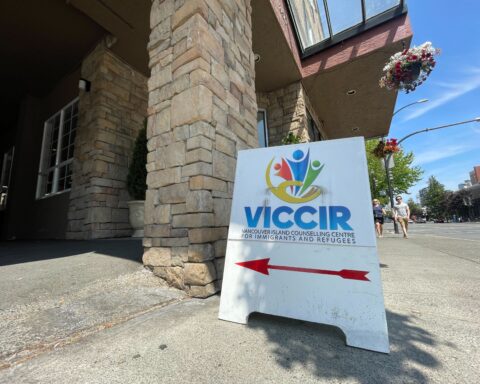A leaked document outlining the Liberal party’s plan to help drum up ethnic votes for the party in British Colombia reads like a primer that many Canadian politicians would be tempted to dip into for “quick wins”.
Deeply embarrassed by the disclosure coming weeks before provincial elections, Premier Christy Clark was quick to apologize, saying in a statement that the plan crossed the line over what’s proper and was unacceptable and inappropriate. “The document did not recognize there are lines that cannot be crossed in conducting this outreach, and it is unacceptable. The language in this draft document and some of the recommendations are absolutely inappropriate,” the statement read. “As a government, we have a responsibility to reach out to every community to ensure they are engaged and understand the services that are available to them.” What was unsaid was the need for such short-sighted moves to engage ethnic voters.
The 17-page document prescribes apologies for historical wrongs ethnic communities as a “quick win” to “improve our chances of winning swing ridings by better engaging supporters from ethnic communities and getting them involved at the riding level”. It specifically mentioned the infamous 1914 Komagata Maru “incident”, which saw a ship carrying passengers from British India being forced to return after a two-month stand-off in Vancouver Harbour. An official federal apology had already been made for the wrong in 2008.
The very focus of political parties on involving ethnic voters at only the riding level is where the problem with regard to their engagement starts. While playing an increasingly positive role toward increasing the electability of visible minorities at the provincial and federal levels, it overlooks the need to start at the lower level of municipalities. Parties see no value in doing so as the current electoral system keeps them away from grass-root politics.
This lack of political engagement has given rise to a consistent pattern of under-representation of ethnic groups at the municipal level where most services aimed at them are delivered. Surveys with visible minority candidates point to a desire for electoral reforms along with other factors affecting their electability.
A recent University of Toronto research into the political and geographic factors contributing to the under-representation of visible minorities in Ontario municipalities suggests the need to explore involving parties among other recommendations. “However, there may be unintended consequences related to the implementation of party systems, and these need to be studied before any solid recommendation is made,” said the researchers, Matthew Smith and Alan Walks, at a panel discussion on their paper organised by Centre of Excellence for Research on Immigration and Settlement (CERIS) that focuses on research into the resettlement and integration of immigrants and refugees in Ontario.
A number of other policy implications emerge from their findings. They include reducing the power of incumbency through term limits, some degree of public financing of candidates, expansion of tax rebates programs for donations to registered candidates, campaign training and mentoring for visible minority candidates, enhanced civic and public education, better media coverage of all candidates, allow permanent resident municipal voting rights as a majority of new immigrants to Canada are visible minorities.
The researchers did point out that “it is crucial that municipal electoral systems be free of structural institutional barriers to visible minority political candidates if Canadian democracy is to remain healthy, open, and inclusive”. A worthy cause for political parties to take up instead of coming up with boiler-plate ideas on how to swing ethnic votes that are an insult to the very communities they target. — New Canadian Media
Ranjit is a Toronto-based writer with interest in Canadian civic affairs, immigration, the environment and motoring. Maytree and Al Jazzera English alumnus.





